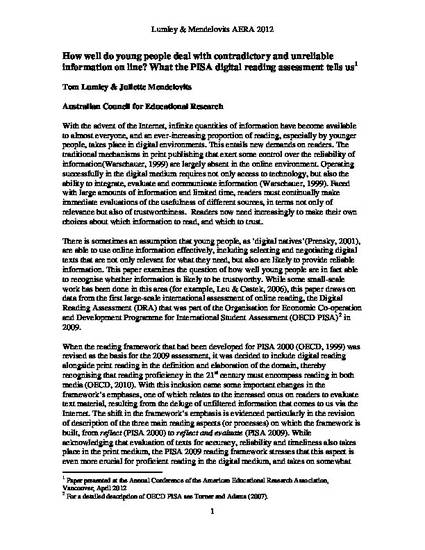
Presentation
How well do young people deal with contradictory and unreliable information on line? What the PISA digital reading assessment tells us
OECD Programme for International Student Assessment (PISA)
Publication Date
4-1-2012
Disciplines
Abstract
There is sometimes an assumption that young people, as ‘digital natives’, are able to use online information effectively, including selecting and negotiating digital texts that are not only relevant for what they need, but also are likely to provide reliable information. This paper examines the question of how well young people are in fact able to recognise whether information is likely to be trustworthy. While some small-scale work has been done in this area, this paper draws on data from the first large-scale international assessment of online reading, the Digital Reading Assessment (DRA) that was part of the Organisation for Economic Co-operation and Development Programme for International Student Assessment (OECD PISA) in 2009.
Citation Information
Tom Lumley and Juliette Mendelovits. "How well do young people deal with contradictory and unreliable information on line? What the PISA digital reading assessment tells us" (2012) Available at: http://works.bepress.com/juliette_mendelovits/4/

Paper presented at the the Annual Conference of the American Educational Research Association (AERA), Vancouver, 13-17 April 2012.